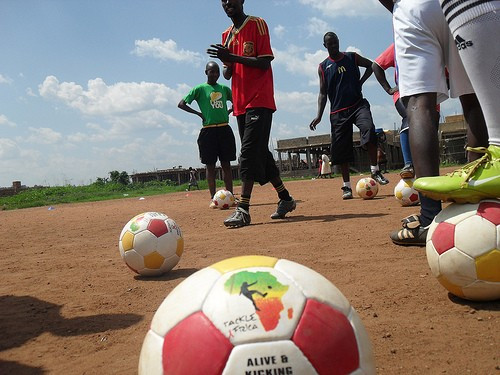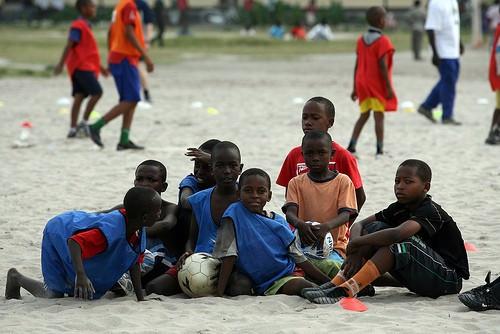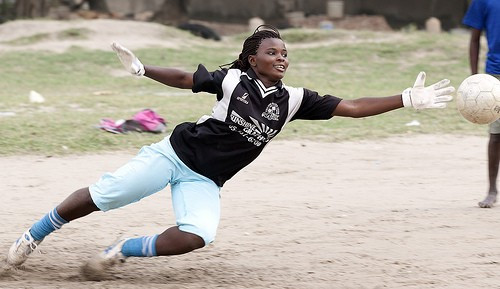World Aids Day 2013: How Football is Helping Raise Africa HIV and Aids Awareness

HIV is a huge public health problem across Africa, with some countries having over 15% of their population infected.
Education on safer sexual practices is key to stemming the epidemic and although there is a lot of work being done, there is still much to do.
Recent figures show an encouraging increase in the number of HIV positive people receiving antiretroviral (ARV) treatment, and in some areas there has been a drop in the number of new infections, but this is accompanied by increases in new infections in other areas.
Reaching Out

Tackle Africa is a charity that uses football as a way of educating young Africans about sexual health, relationships, and HIV.
We work across Kenya, Tanzania, Uganda, Zambia, Ghana and South Africa and we use football because it's easily the most popular sport in Africa.
While you can't always reach young people in the classroom (many of our young players cannot afford to go to school), you can always find them kicking a ball around somewhere.
Tackle Africa teaches young people how to avoid getting HIV, how to live with HIV if you have it, and how to support others to do the same.
All the educational - and life-saving - messages are contained within fun football drills, so all the learning takes place while playing football.
For example, one of our drills involves players shooting at a goal with ten goalkeepers.
The goal represents the body, and the goalkeepers are the white blood cells fighting infections. As the drill progresses, the goalkeepers are removed, representing how HIV breaks down the body's natural defence system.
And of course the players get to take lots of shots at goal, which they love!
Teaching Communities, Not Just Individuals

The Tackle Africa model is not to train individual players, but to train local football coaches so they can deliver our drills to their own communities.
It's a much better way for messages to take hold in a community, and will have a more lasting impact than if an external coach visited for just one week and then left.
Football coaches are role models in these communities, and we use the influence they have - and the popularity of football - to deliver essential sexual health education.
My role is to deliver coaching programmes, and to oversee all the work we do, in Kenya.
I've run courses across the whole country working with Physical Education teachers in schools to community peer educators in some of the largest slums in Nairobi.
I also work with a rural community-based sports organisation who work only with women and girls.
That poses its own challenges, as football is still a male-dominated sport.
For these girls, just playing football is already challenging a widely held view of a woman's place in society.
Speaking out in their communities about condom use and safer sexual practices can be difficult, but the girls all say playing football empowers them and gives them more confidence.
Laura Brooks is a Coaching Development Officer in Kenya for Tackle Africa.
Follow Tackle Africa on Twitter at: @tackleafrica
Visit the Tackle Africa home page for more information
FOR MORE IBTIMES UK COVERAGE OF WORLD AIDS DAY, READ THE FOLLOWING
Nine things not to say to someone with HIV
HIV infection rates are falling across Africa, but not in Uganda. Why?
My life with HIV, by Hamish MacKenzie-Sempill
HIV and me - living with one of the world's most feared illnesses
© Copyright IBTimes 2025. All rights reserved.




















